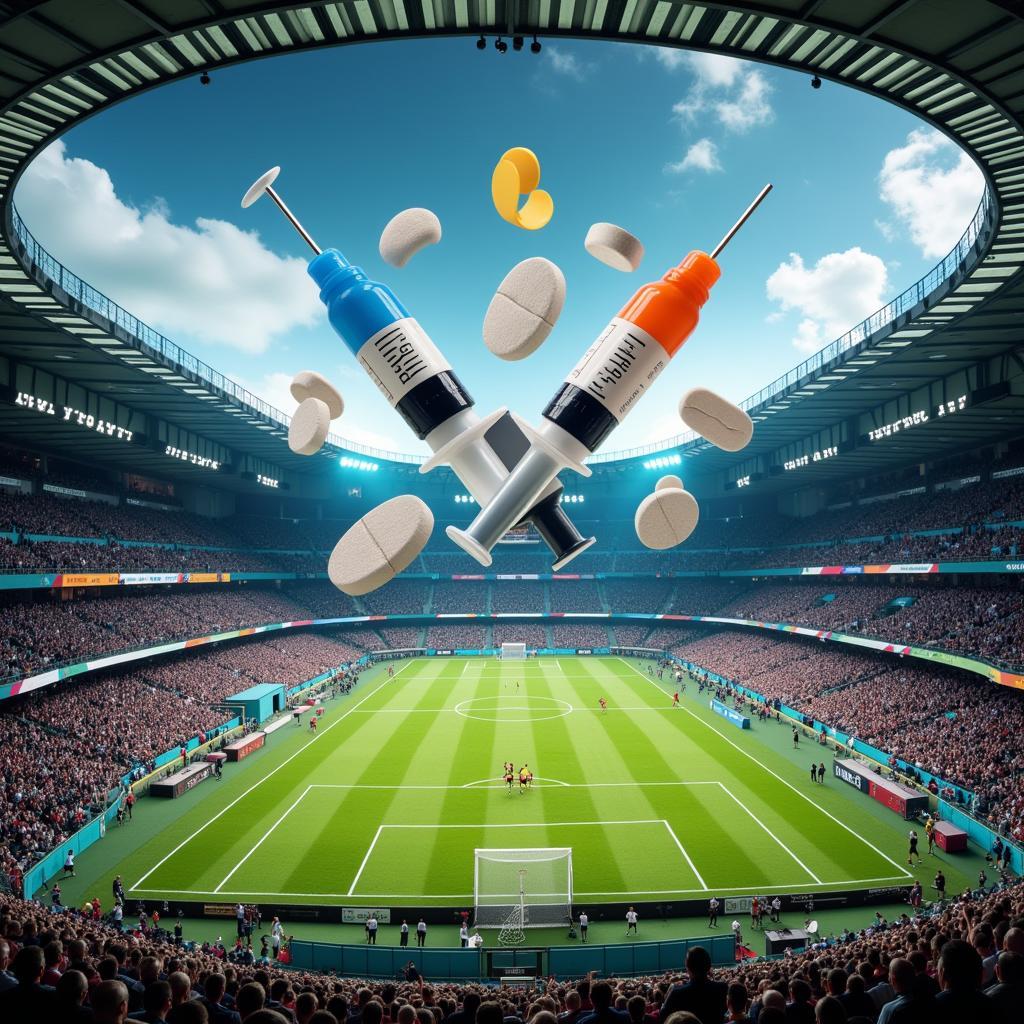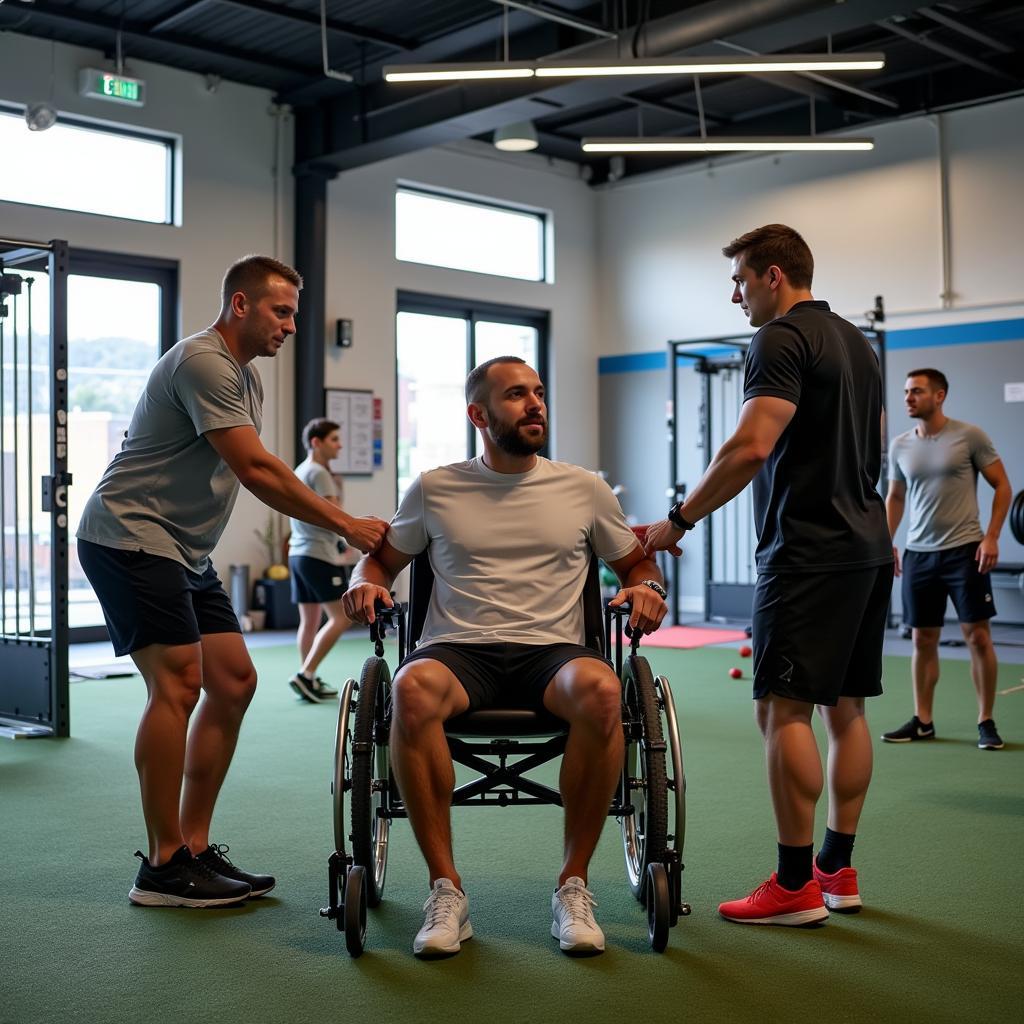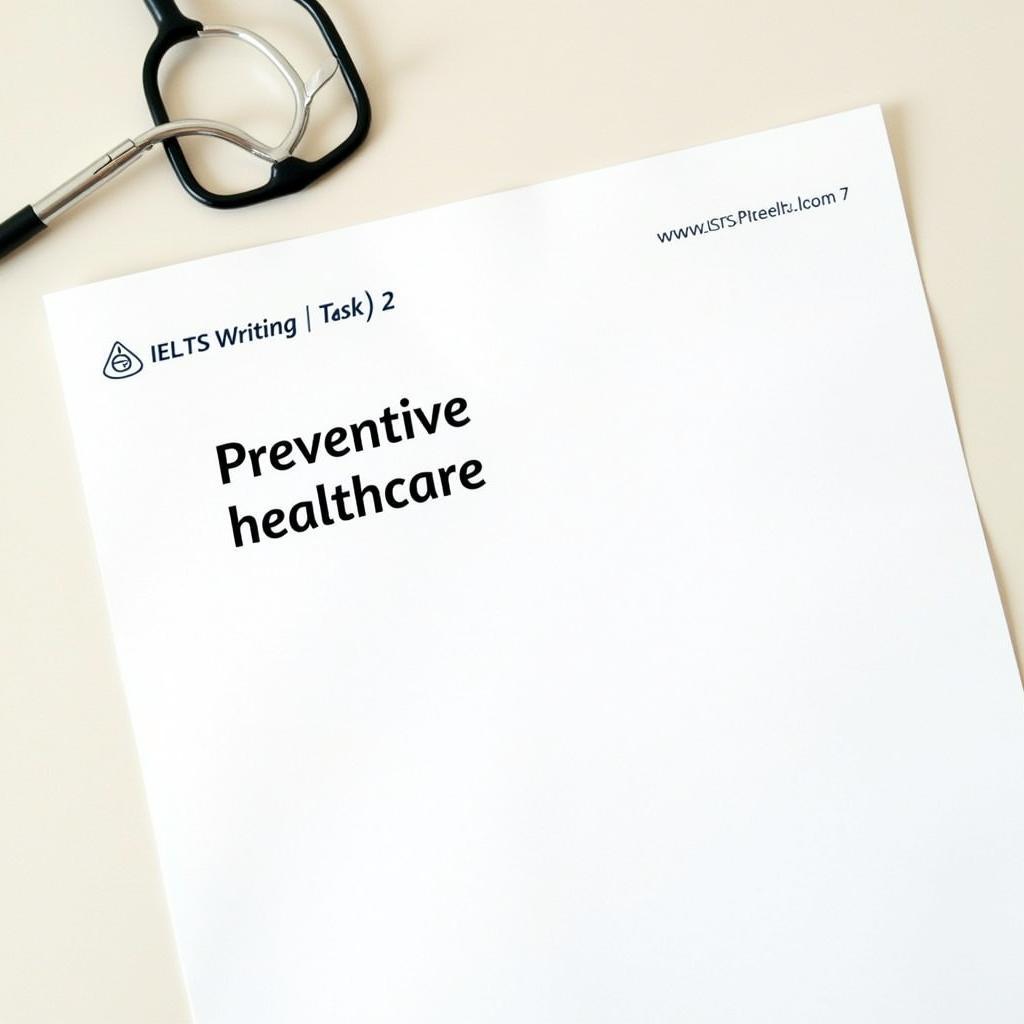Performance-enhancing drugs in sports has consistently appeared in IELTS Writing Task 2 questions, particularly during 2019-2023. Based on analysis of past exam papers and trends, this topic is likely to remain relevant due to ongoing debates about fairness and ethics in professional sports.
Table Of Contents
Legalize doping in sports: agree or disagree? has become increasingly important as sports organizations worldwide grapple with this complex issue.
 Professional athletes competing in stadium with controversy over performance enhancement
Professional athletes competing in stadium with controversy over performance enhancement
Sample Question Analysis
Some people think that athletes who use performance-enhancing drugs should be banned from professional sports permanently. Others believe they should be given a second chance. Discuss both views and give your opinion.
This question requires:
- Discussion of both perspectives
- Clear personal stance
- Balanced analysis
- Relevant examples
- Logical conclusion
Band 8 Sample Essay
Athletes caught using performance-enhancing substances face severe consequences, and there are differing views on whether they deserve permanent exclusion or rehabilitation opportunities. While both perspectives have merit, I believe a balanced approach combining strict penalties with rehabilitation paths is most appropriate.
Those advocating permanent bans argue that doping fundamentally undermines sports integrity. When athletes use banned substances, they not only gain unfair advantages but also jeopardize their health and set dangerous precedents for younger generations. For instance, the Lance Armstrong scandal severely damaged cycling’s reputation and discouraged many aspiring athletes. Furthermore, allowing second chances might suggest that cheating carries acceptable risks, potentially increasing doping incidents.
However, proponents of second chances emphasize rehabilitation’s value and human fallibility. Many athletes face intense pressure to perform, and some make mistakes under duress rather than through calculated malice. The case of David Millar, who returned to cycling after a doping ban and became an anti-doping advocate, demonstrates how reformed athletes can positively impact their sport. Additionally, permanent bans might be disproportionate, especially for young athletes who deserve opportunities for redemption.
In my opinion, a nuanced approach combining strict initial penalties with conditional reinstatement opportunities is most effective. First-time offenders should face substantial bans (2-4 years) and financial penalties. However, they should be allowed to return if they complete comprehensive rehabilitation programs, demonstrate genuine remorse, and contribute to anti-doping education. This approach maintains deterrence while acknowledging potential for reform.
 Athletes in rehabilitation program working with trainers and counselors
Athletes in rehabilitation program working with trainers and counselors
Band 6.5 Sample Essay
The use of performance-enhancing drugs in sports is a big problem today. Some people think athletes who use these drugs should never play again, while others think they deserve another chance. I will discuss both sides and give my opinion.
People who support permanent bans have good reasons. Firstly, using drugs in sports is cheating and it’s not fair to other athletes who play clean. For example, many Olympic medals have been taken away from athletes who used drugs. Secondly, it sends a bad message to young people who want to become athletes. If they see drug users coming back to sports, they might think it’s okay to use drugs.
On the other hand, some people believe in second chances. They say that athletes sometimes make mistakes because of pressure from coaches or teams. Also, if an athlete shows they are sorry and wants to change, they should get another chance. Some athletes who came back after drug bans now help teach others about the dangers of drugs.
I think athletes who use drugs should get another chance, but only after a long ban and if they prove they have changed. They should have to pass many drug tests and maybe do community service. This way, they can show they learned from their mistakes.
Key Vocabulary
- Performance-enhancing substances (n) /pəˈfɔːməns ɪnˈhɑːnsɪŋ ˈsʌbstənsɪz/ – drugs used to improve athletic performance
- Rehabilitation (n) /ˌriːəˌbɪlɪˈteɪʃən/ – process of recovery and reform
- Deterrence (n) /dɪˈterəns/ – prevention through fear of consequences
- Malice (n) /ˈmælɪs/ – intention to cause harm
- Fallibility (n) /ˌfæləˈbɪləti/ – tendency to make mistakes
- Disproportionate (adj) /ˌdɪsprəˈpɔːʃənət/ – too severe or lenient
- Remorse (n) /rɪˈmɔːs/ – deep regret for wrongdoing
- Integrity (n) /ɪnˈteɡrəti/ – moral uprightness
Conclusion
This topic remains crucial in IELTS Writing Task 2. Practice writing responses to similar questions like:
- Should performance-enhancing drugs be legalized in professional sports?
- Do technological advantages in sports create similar ethical issues as doping?
- Should sports organizations focus more on prevention or punishment regarding doping?
Share your practice essays in the comments for feedback and improvement suggestions.


